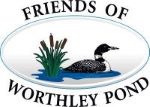Each year, $1.8 billion dollars are spent in Maine on lake-related activities. Lakes in Maine support 52,000 jobs and provide drinking water for 400,000 people. In many towns, lakes are the greatest economic and natural resource.
But what if a lake gets polluted or turns green with scum? Fewer people come to boat, fish and support local businesses. Residents lose jobs. More money is spent on water treatment. Property values can drop 5% – 10%, lowering taxes collected by towns and resale values.
With so much value generated by our lakes, it’s important to do whatever we can to protect them.
What is your “Lake Protection IQ?” ( see answers below)
1. What type of engine does your boat have?
- Jet propulsion (PWC or jet ski)
- Two stroke outboard
- Four stroke outboard
2. How do you care for your septic system?
- I have it pumped when the toilet backs up
- I have it pumped out every three years even if it seems to be OK
- I don’t do anything; it has always worked
3. What type of fertilizer do you use in your yard?
- None
- Four step weed and feed
- Phosphorus-free once a year
4. Which best describes your yard?
- Lawn and flower beds
- Small lawn surrounded by natural vegetation or landscaping
- Lawn down to the water, stream or drainage ditch
5. Even if you do not live on a lake, can what you do in your yard make a difference to a lake?
- No
- Yes
- I don’t know
Answers:
1. c. Four stroke high efficiency engines are the best for the environment. They discharge 1/3 less fuel than two stroke engines and PWC (jet skis). Paddling is even better!
2. b. Pump your tank every 3-5 years. Conserve water and do not dump harsh chemicals, paint, grease, or septic tank additives down drains or toilets. Old systems can contaminate ground water or leak into lakes.
3. a. or c. Conduct a soil test before you fertilize to determine how much, if any, your soil needs. Phosphorus-free fertilizer does not cause green scum in lakes. Watch out for “weed and feed” blends. They contain pesticides.
4. b. Trees, shrubs and ground cover protect lakes by filtering dirty storm water. It is better not to rake these areas since the leaves, twigs and pine needles act as a natural mulch to absorb and filter storm water. A smaller lawn means less mowing and less pollution for the environment.
5. b . Even if you do not live on a lake you do live in a watershed. Since 50% of Maine drains to a lake, what you do in your yard can make a difference!
Your lake protection knowledge:
4-5 correct – Excellent! If you are not already a Friends of Worthley Pond member, click here to join.
2-3 correct – OK, but there’s lots more to learn. Visit the Maine DEP: Lakes.
0-1 correct – Not good. Hope this little quiz has provided you with ideas about protecting your lake. For more information, email the Friends of Worthley Pond.
